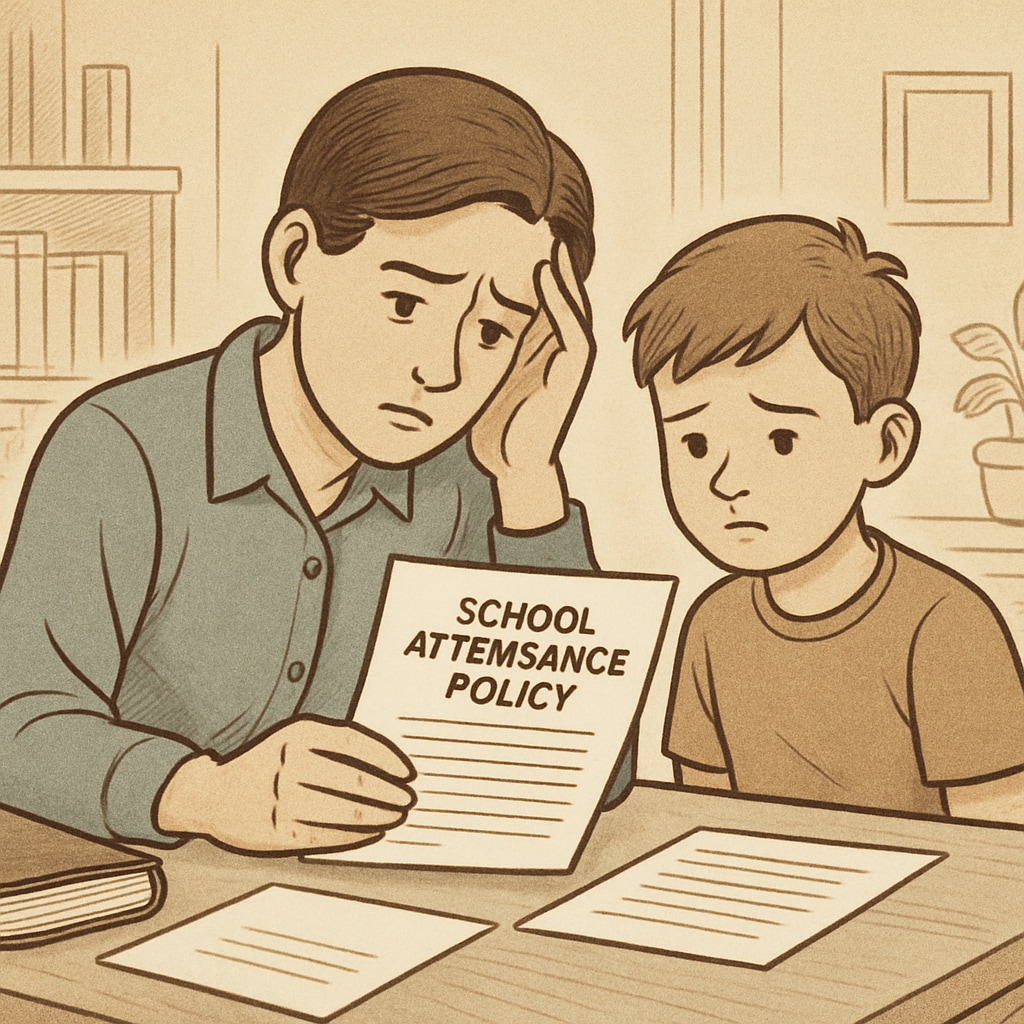Strict attendance policies, school attendance, and church intervention are topics that have sparked growing debate among parents, educators, and policymakers. Many K12 schools today enforce rigid rules regarding student absences, aiming to curb truancy and ensure academic consistency. However, these policies often lead to unintended consequences, including stress and frustration for families who feel trapped by inflexible regulations. This article delves into the complexities of these policies, highlighting the tension between mechanical enforcement and the true purpose of education, while addressing the appropriateness of relying on church organizations as a potential solution.
The Impact of Rigid Attendance Policies on Families
For many parents, navigating strict attendance policies feels like walking a tightrope. While schools aim to maintain discipline and prevent disruptions, the rigidity of some systems ignores the nuances of family life. For example, unexpected illnesses, mental health challenges, or family emergencies often result in penalties that disproportionately affect both students and their parents. These policies may label students as “chronic absentees,” even when their absences are legitimate.
Furthermore, the pressure to meet attendance requirements can lead to unintended consequences. Parents may feel compelled to send their children to school while unwell, risking the spread of illnesses among classmates. As a result, the focus shifts from fostering a supportive learning environment to meeting arbitrary numbers.

Balancing Rules with the Essence of Education
Education, at its core, is meant to nurture intellectual growth, emotional development, and social skills. However, overly strict attendance policies risk undermining these values. When the emphasis is placed solely on numbers, the broader objectives of education—such as fostering curiosity and critical thinking—take a backseat.
Mechanical enforcement of rules raises the question: Are these policies truly serving the best interests of students? For instance, a child recovering from trauma or a serious illness may need time away from school to heal. Yet, rigid systems often fail to accommodate these circumstances, leading to unnecessary stress and feelings of alienation.
According to Britannica, education systems should adapt to the diverse needs of their students rather than impose one-size-fits-all solutions. Schools must strike a balance between enforcing policies and prioritizing the well-being of their students.

Should Church Organizations Play a Role?
In some regions, church organizations have been proposed as mediators to address attendance-related issues. While such interventions may provide support for families in need, they also raise important questions. Is it appropriate to involve religious institutions in what should remain a secular educational system? The role of the church in education varies significantly depending on cultural and legal contexts, and its involvement may not always align with the principles of inclusivity and neutrality.
Moreover, relying on external entities such as churches can create inconsistencies in how attendance issues are handled. Instead, schools should focus on establishing transparent and equitable policies that address the root causes of absenteeism without external influence. For additional insight into the relationship between education and societal institutions, Wikipedia offers a comprehensive overview.
Advocating for Humane Attendance Policies
Ultimately, attendance policies should reflect the complexities of human life and the true essence of education. A more humane system would consider the individual circumstances of each student, such as health issues, family emergencies, or other legitimate reasons for absence. Schools could implement flexible solutions such as excused absences for documented cases, virtual learning options, or counseling support for students facing challenges.
By prioritizing empathy and understanding, schools can foster an environment where students feel supported rather than punished. This approach not only benefits students but also strengthens the trust between families and educational institutions.
Readability guidance: The article utilizes clear headings, short paragraphs, and examples to enhance comprehension. Lists and external links provide additional context, while the focus remains on actionable solutions.


